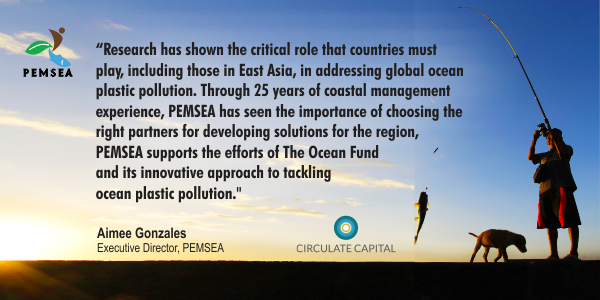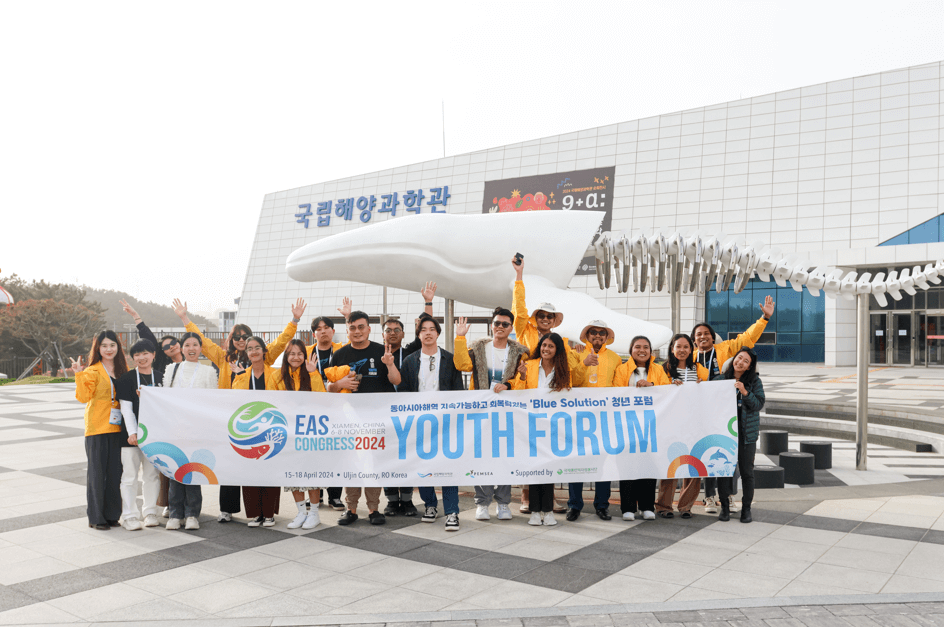In case you missed it: Circulate Capital and Ocean Conservancy publish first-of-its-kind investment guide to help solve south & southeast asia ocean plastic crisis
Friday, 12 April 2019

Circulate Capital, the investment management firm dedicated to incubating and financing companies and infrastructure that prevent ocean plastic in South and Southeast Asia (SSEA), has released "Investing to Reduce Plastic Pollution in South and Southeast Asia: a handbook for action" ("handbook"), a guide aimed at catalyzing investment around immediate solutions to SSEA's ocean plastic crisis. Circulate Capital made released the guide in partnership with Ocean Conservancy, a leading ocean protection nonprofit.
Culminating more than a year of research and building on Ocean Conservancy's seminal Stemming the Tide report, the handbook is a first-of-its-kind guide to investment opportunities in SSEA's municipal waste management and recycling infrastructure sectors, the two sectors in the region identified by Circulate Capital and Ocean Conservancy as having the most solutions ready to scale. It lays out a variety of factors impacting the entire plastics value chain to help investors evaluate opportunities and deploy assets in the region. The handbook is open-sourced so Circulate Capital's findings and knowledge are fully accessible to institutional investors to help spur additional investment at the scale that is required.
The handbook also provides valuable insight for the many other actors who will play critical roles in scaling these sectors and developing a circular economy in South and Southeast Asia–including governments, NGOs, entrepreneurs and academic institutions.
"We've spent enough time pointing at the problem, now we have to focus on the solution. The time to act is now," said Rob Kaplan, Founder and CEO of Circulate Capital at the World Ocean Summit. "We recognized we had to refocus the conversation on investible solutions that are ready for deployment today. Our goal with this handbook is to provide institutional investors with the knowledge and insights they need to catalyze investment and action in waste management and recycling infrastructure in South and Southeast Asia."
"There are no silver bullets to solving the ocean plastic crisis, which is why Circulate Capital takes a novel and comprehensive approach to addressing these issues. The handbook is another important contribution we are making to the ecosystem of actors who are working to end ocean plastic pollution. Building on the important work begun by Ocean Conservancy nearly four years ago, the handbook is open-sourced so we can share all our knowledge with all participants along the plastics value chain. Working together we can solve this problem."
In October 2018, Circulate Capital announced that it expects to receive US$100 million in funding for its investment strategy to combat ocean plastic from several of the world's leading consumer packaged goods and chemical companies. With funding and collaboration from public and private sources, the firm aims to remove capital barriers to the development of waste management and recycling infrastructure, and to support innovative solutions to ocean plastic issues. In parallel, The Incubator Network by Circulate Capital and Second Muse, which receives philanthropic funding and strategic support, seeks to accelerate solutions to ocean plastic waste by partnering with existing incubators to build ecosystems of waste management and recycling innovators in SSEA.
Key Findings
The following are some of the key findings from the handbook:
Investing to Reduce Plastic Pollution in South and Southeast Asia: a handbook for action can be downloaded from PEMSEA's SEA Knowledge Bank.



